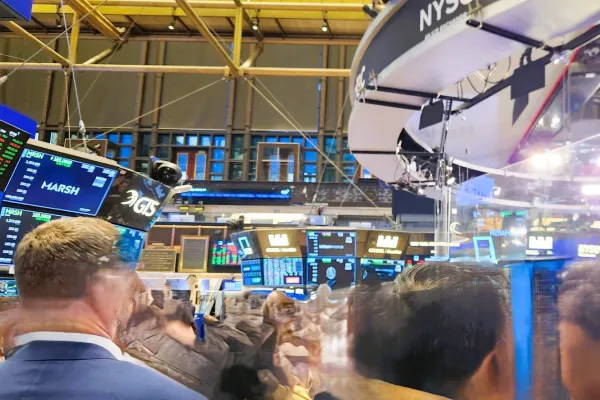Machine learning and artificial intelligence are finding their way into the dark pools that allow asset managers to execute multiple large block trades simultaneously, without leaving ripples in the market place.
Dark pool operators are hiring teams of AI experts and, in some cases, buying AI companies, to remain competitive in the face of rising competition from major brokers and global exchanges, according to Brad Bailey, an analyst at research firm Celent, a division of Oliver Wyman that studies financial technology applications globally.
“Machine learning is becoming a core part of how venues such as dark pools can rapidly access market conditions,” Bailey, Celent’s research director in charge of capital markets, wrote in an email to Institutional Investor. “It has become a core to the high speed electronic world of exchange and venue trading.”
Bailey pointed to dark pool operator Liquidnet’s acquisition earlier this year of London-based decision analytics company OTAS Technologies. The transaction is an example of how dark pools are making AI as part of their product offering, helping fund managers to access new resources when many sell-side vendors are cutting services due to budget and staff reductions.
[II Deep Dive: Why Investors Won’t Embrace AI]
Liquidnet chief executive Seth Merrin said his firm began rolling out an AI service called “virtual high touch” a few years ago that advised fund managers and traders after analyzing their trading behavior. In the past month, Liquidnet began introducing services developed by OTAS that advise fund managers prior to trading, by analyzing data from markets and alternative sources, such as corporate action meeting announcements and dividend notices. “Our mission is to enable asset management companies with the latest technology so they can ask the data different questions,” Merrin told II in a recent interview at Hong Kong’s Upper House Hotel.
Liquidnet rival Instinet also has been implementing AI. The firm, which is a member of Japan’s Nomura Securities group and has a history of innovation in electronic trading, uses a number of AI techniques in its order-routing process and algorithmic trading platform, according to Stuart Knowling, the company’s Hong Kong-based Asia chief executive officer.
“Our infrastructure allows us to capture, store and process terabytes of trade, quote, and order data,” Knowling wrote in an email. “We then use machine learning techniques, such as multivariate non-linear models and PCA — principal component analysis — to run and test our models and scenarios.” Instinet’s quantitative team is also running projects using Q-learning, a reinforcement learning technique, and deep learning, a method that is often likened to a “neural network,” according to Knowling.
The use of AI in trading is not going away, said Celent’s Bailey. It will become the norm in years ahead as a core function in dark pools and across all capital markets, he contended, predicting that man and machine will merge across all global capital markets. “We are very much at the beginning.”
AI is evolving “from its current state of replicating and optimizing what the best human traders do, to down the road, when AI will lead to automating much more in trading,” Bailey said. “This process, in the meantime, will continue to bring great benefits to portfolio managers, traders, and investors… This melding of human and machine, or cyborg model, will be dominant for the foreseeable future in all capital markets.”






